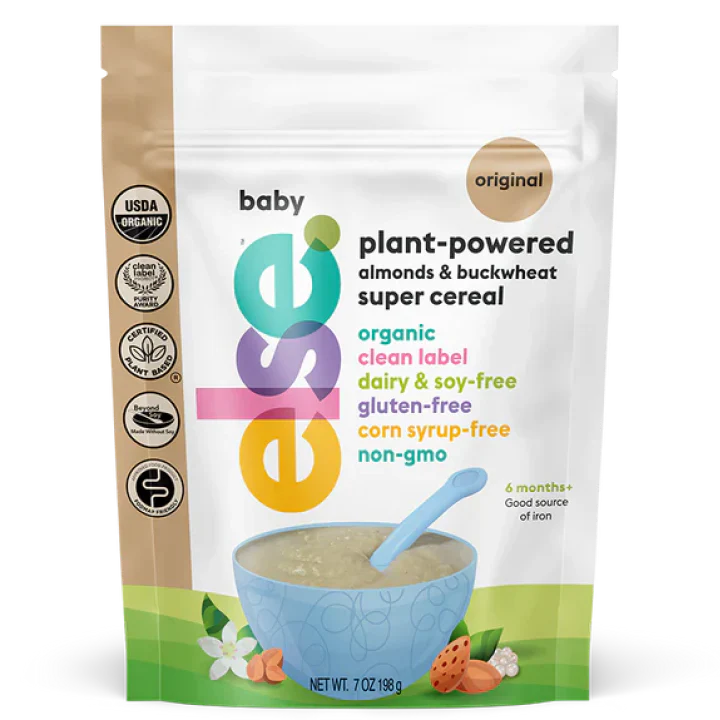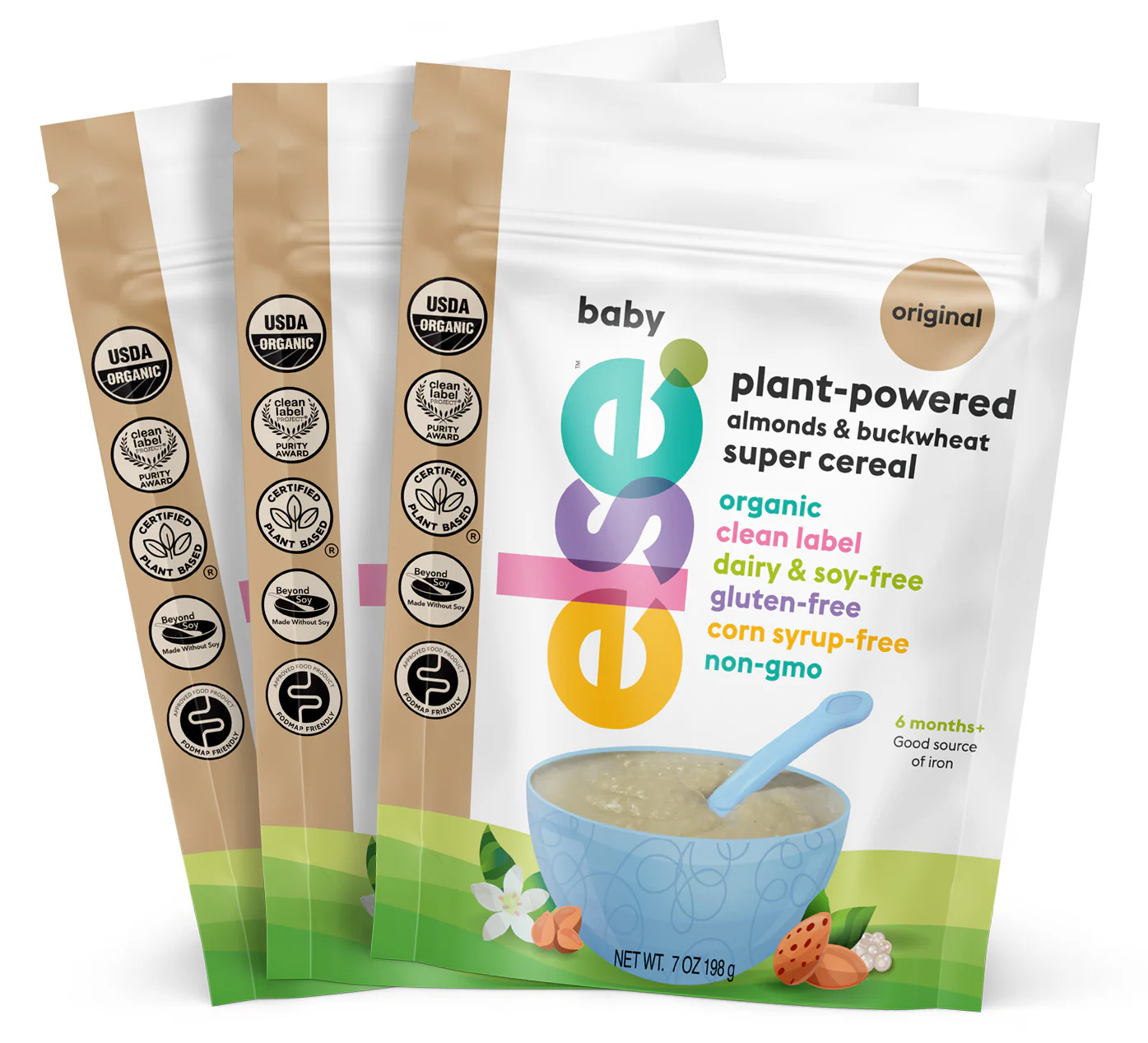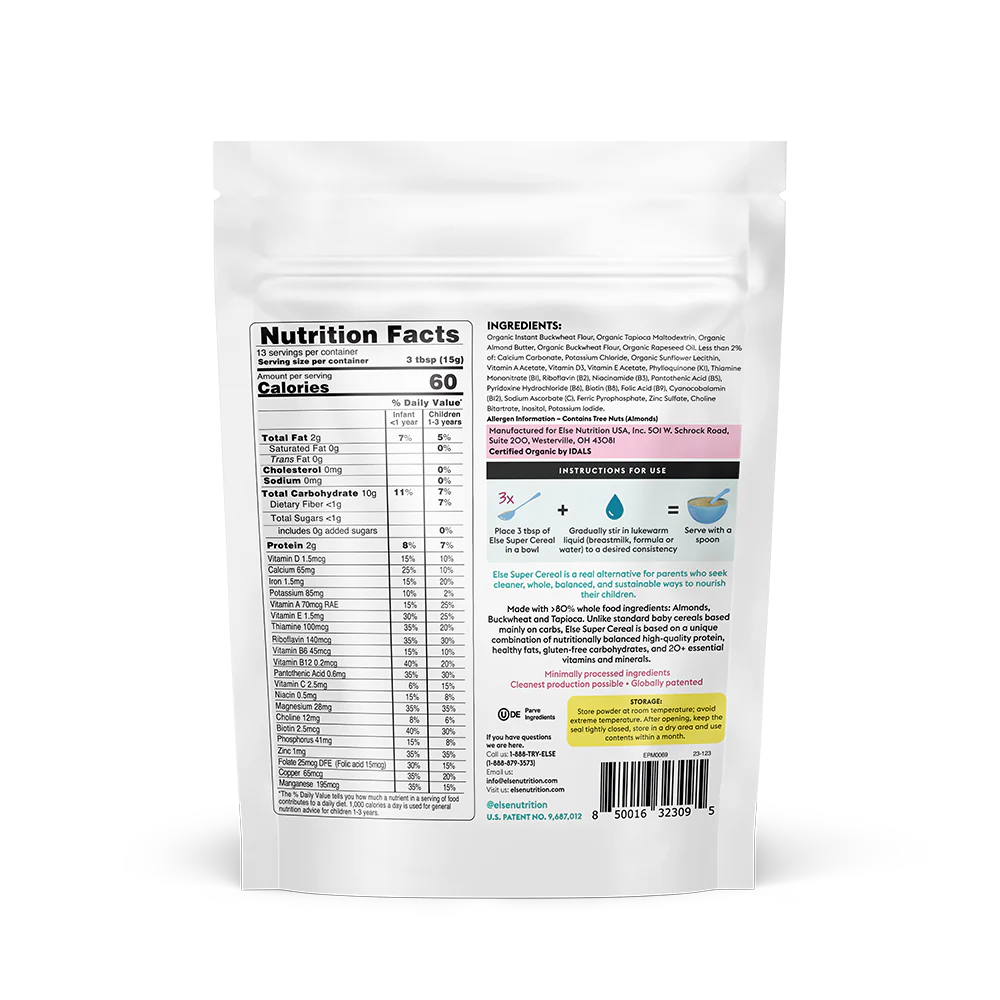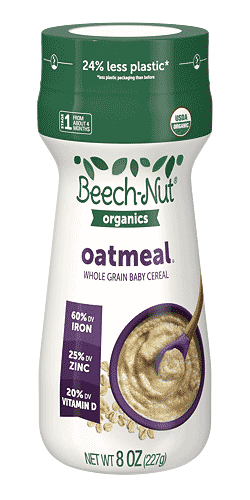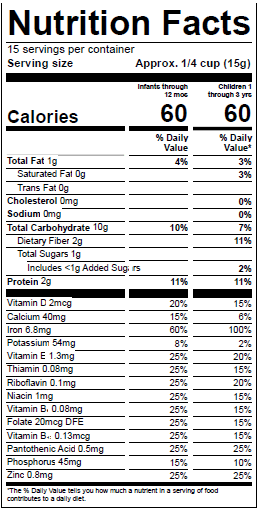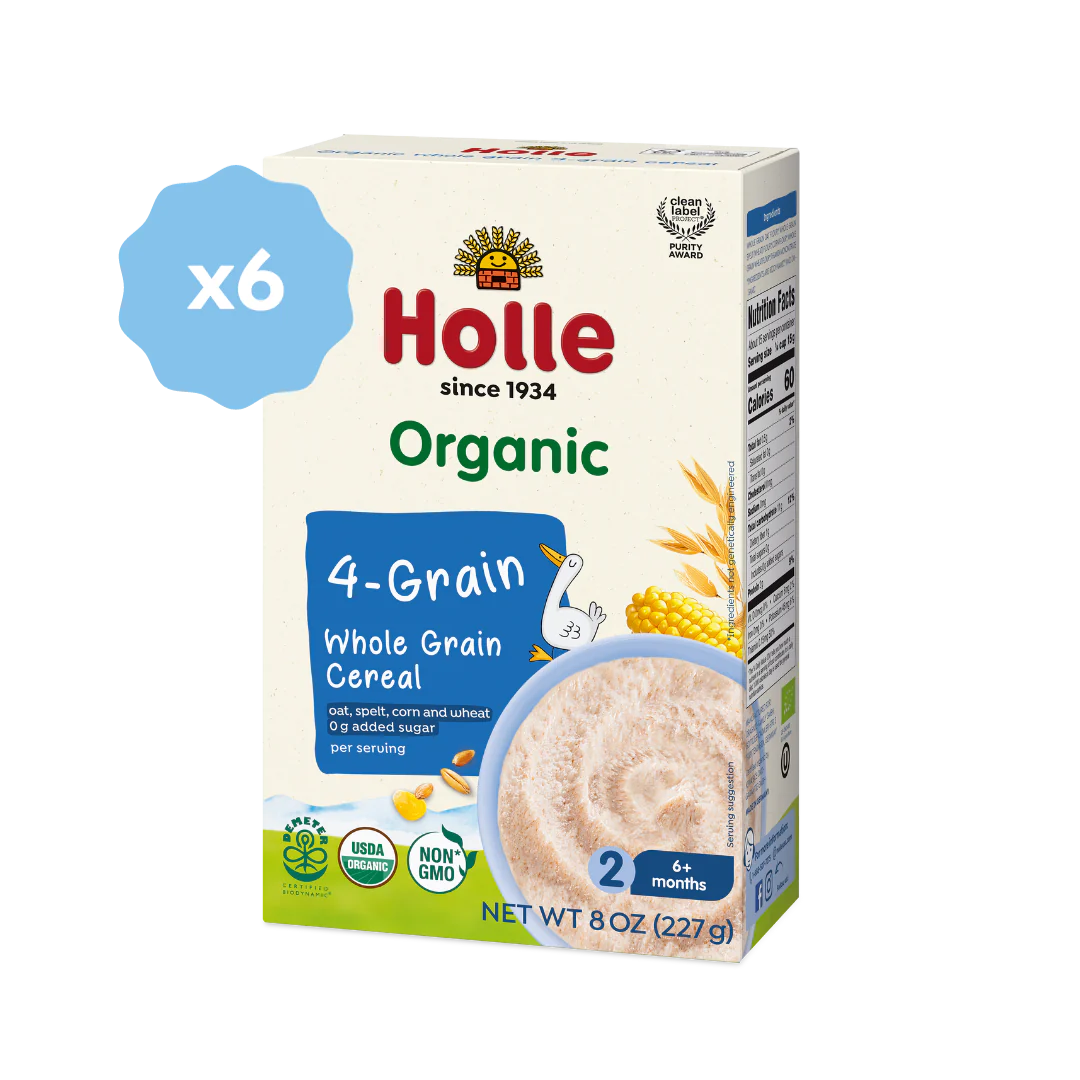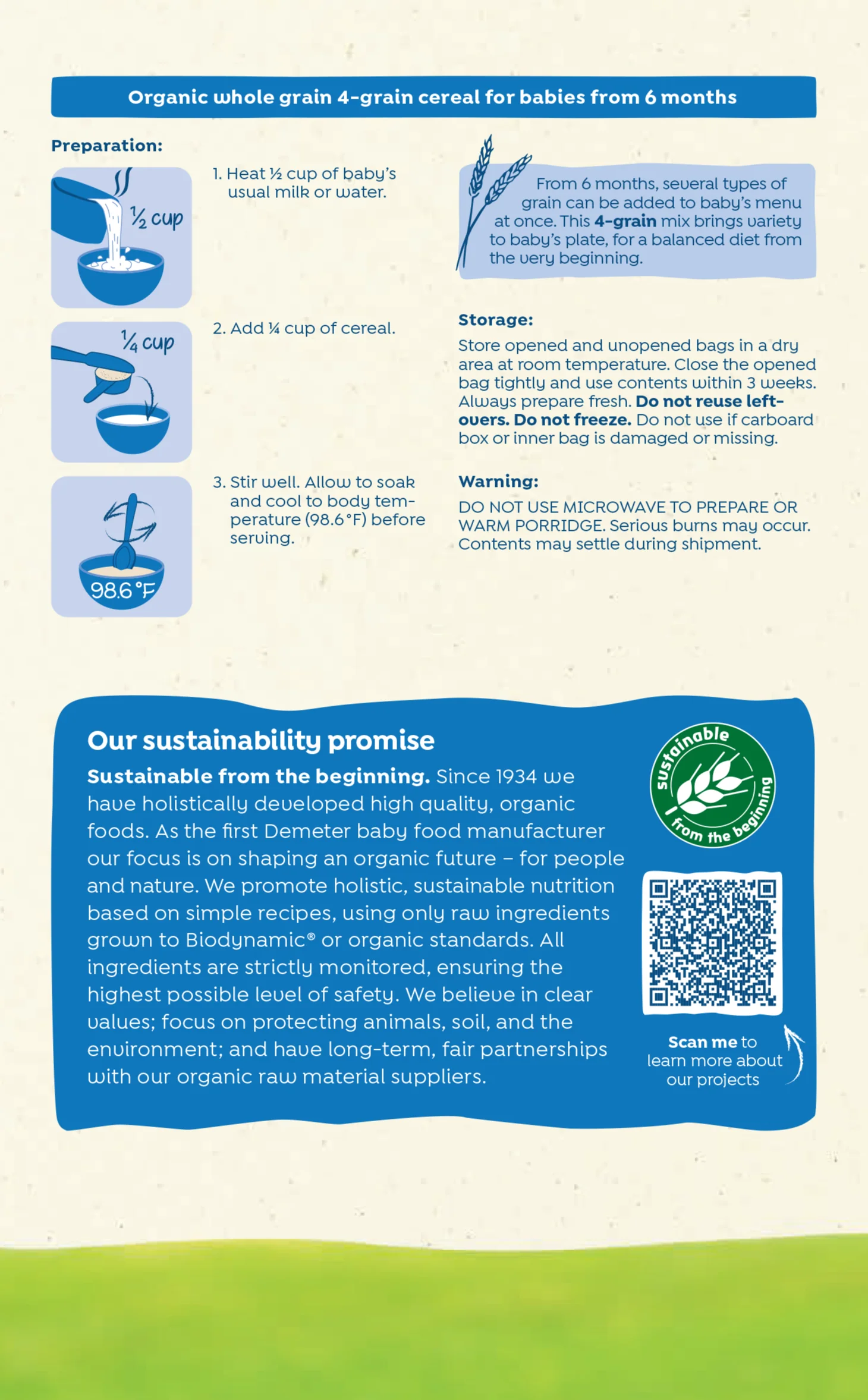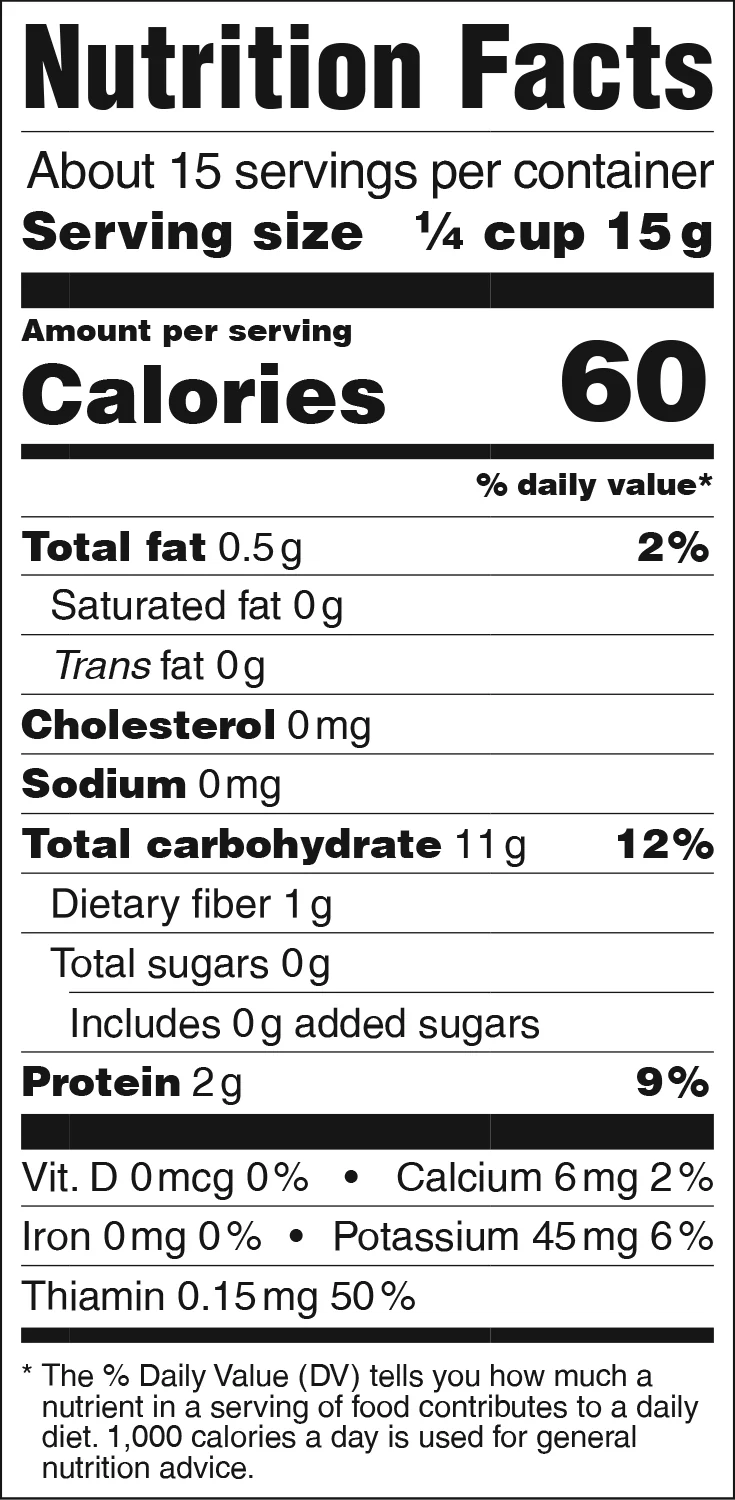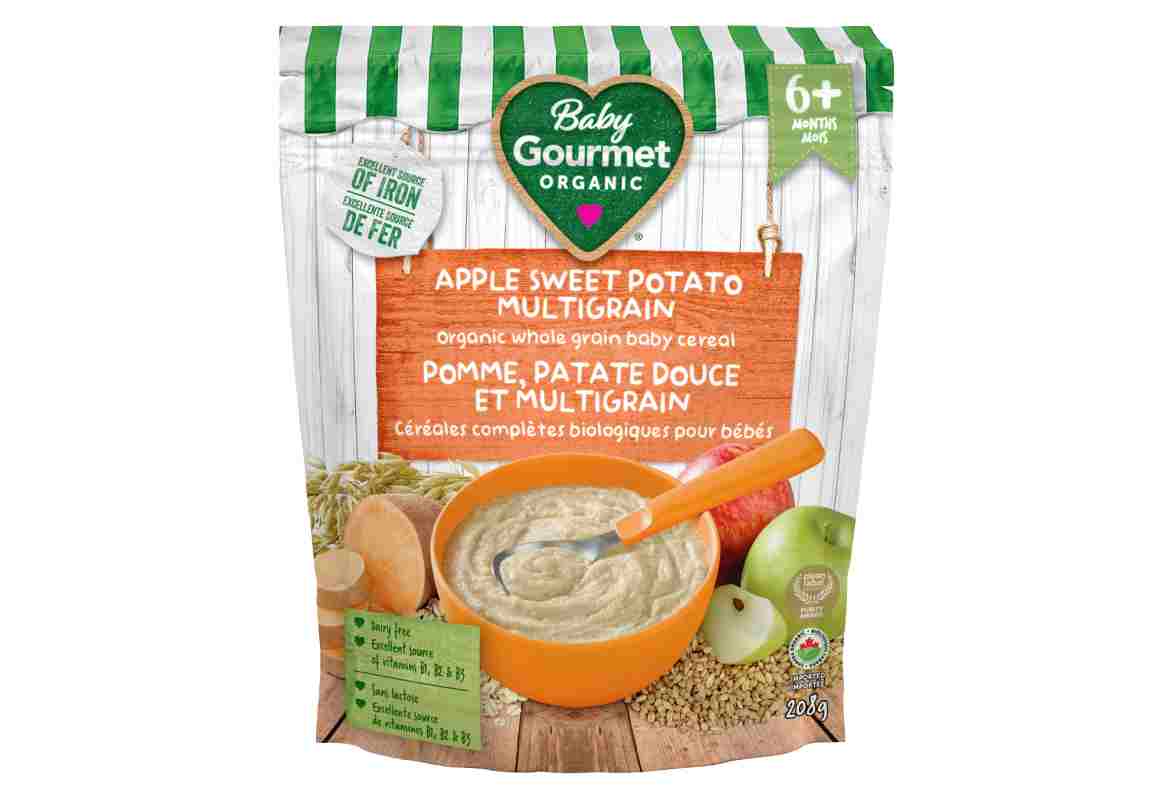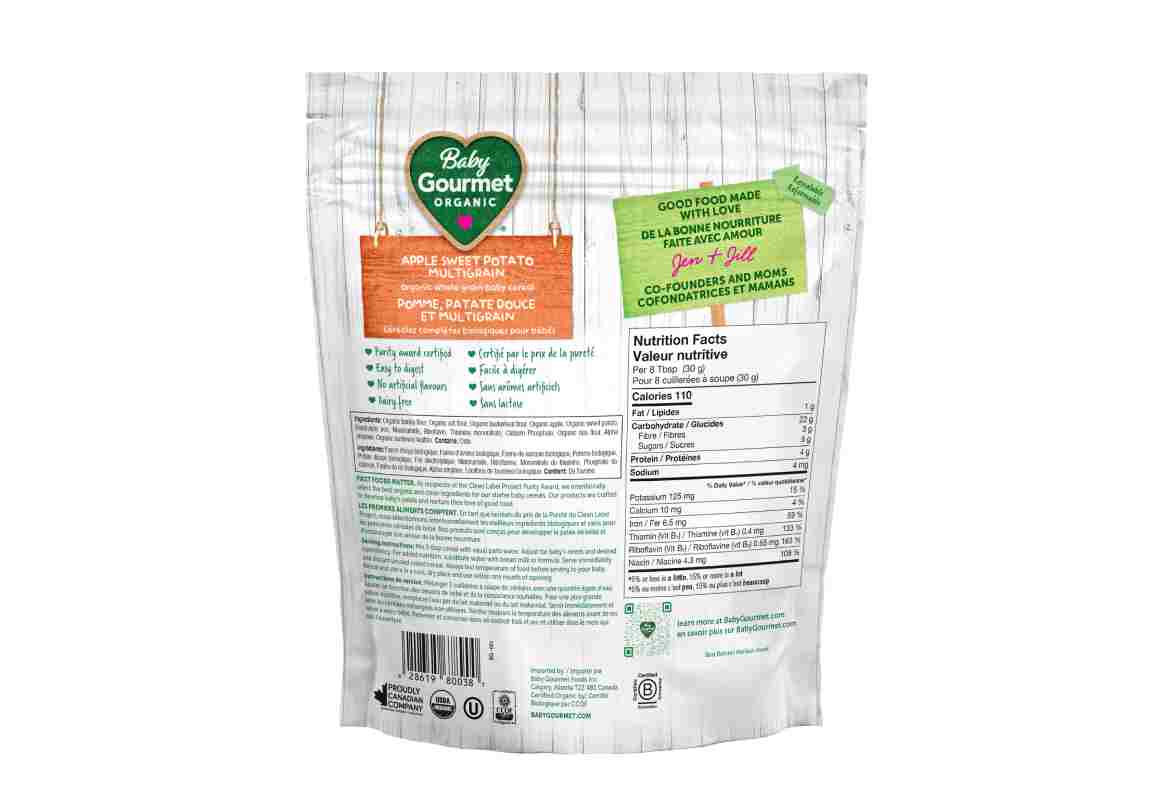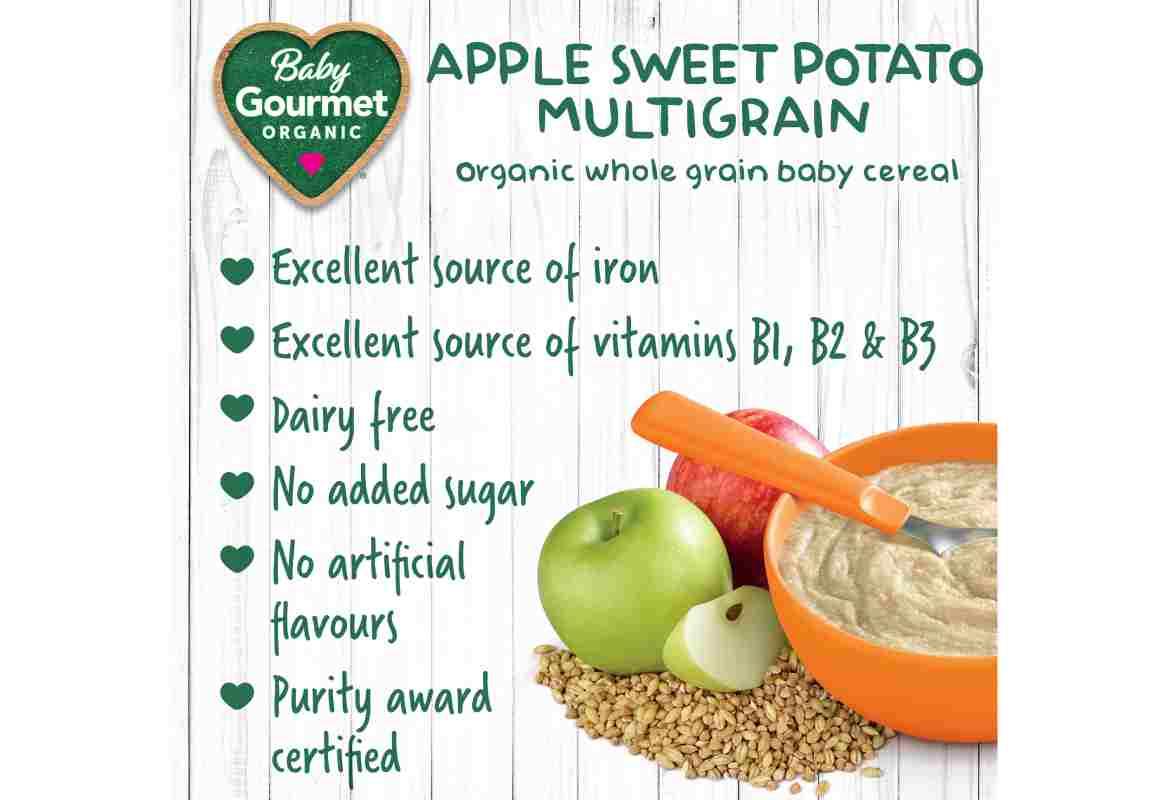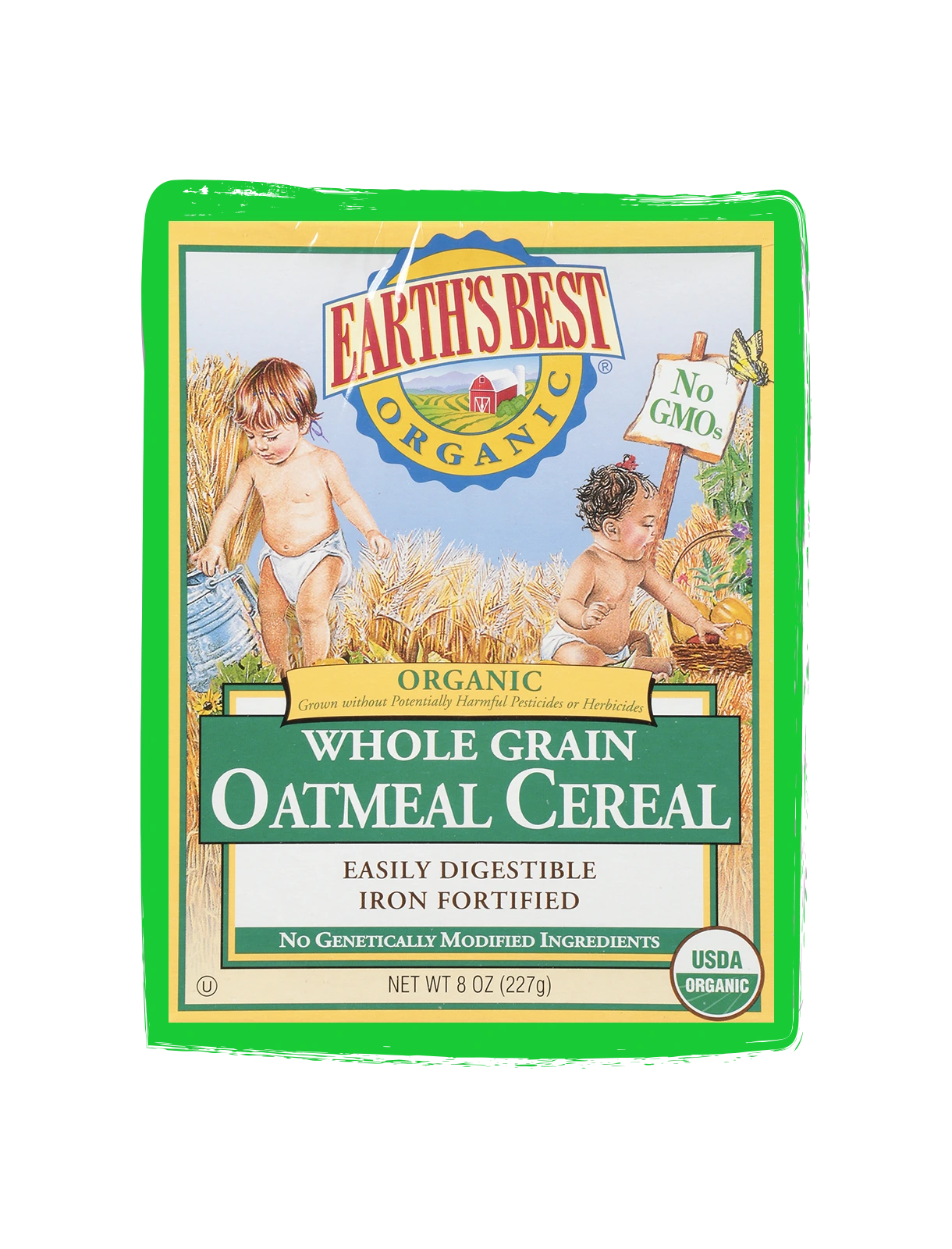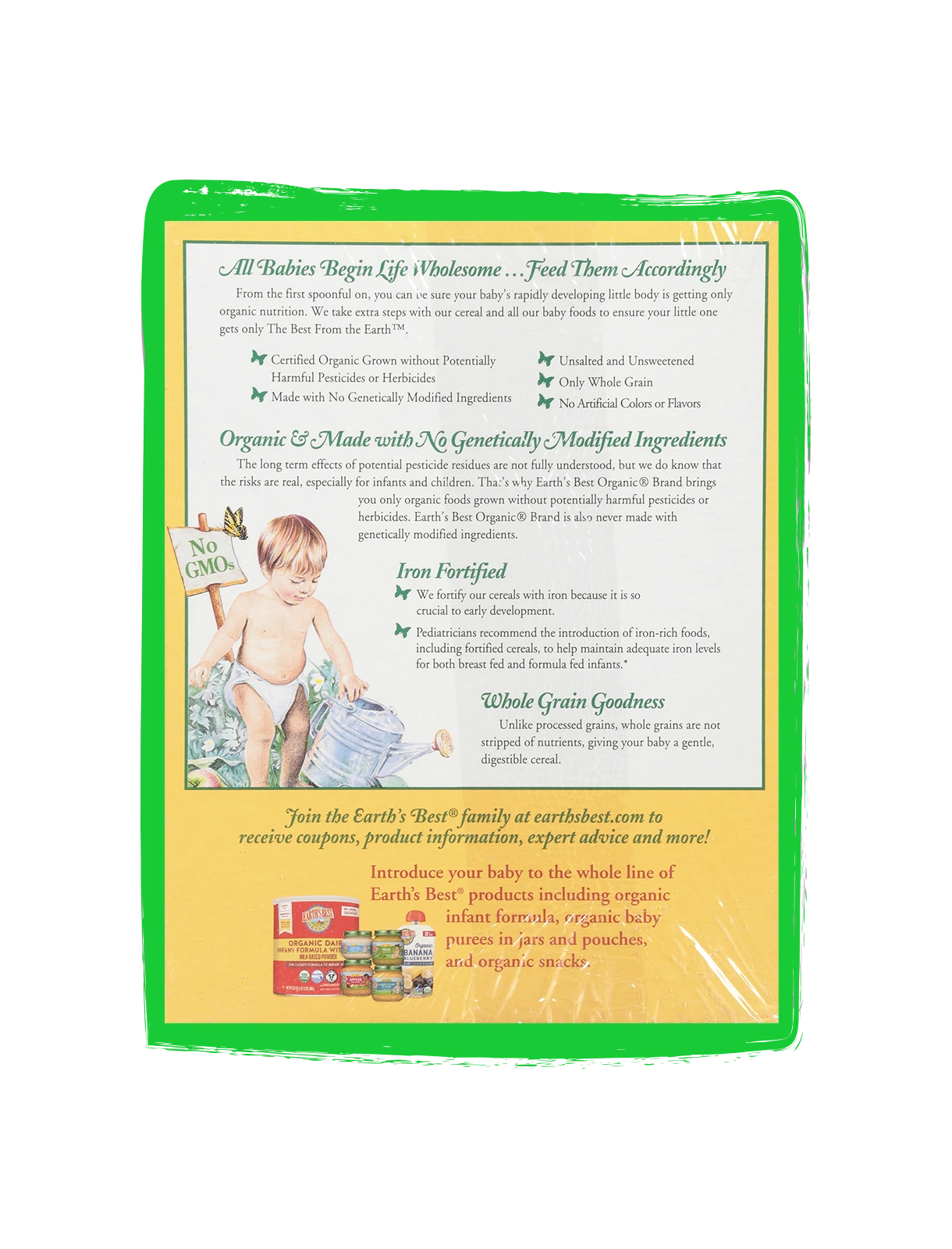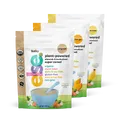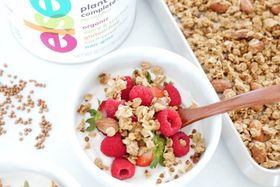5 Best Baby Cereal to Start With: Expert-Recommended Choices
Start your baby's journey with the right food. Discover the best baby cereals for optimal nutrition
Updated September 18, 2024

As your baby reaches that exciting 6-month milestone, you're likely pondering the big question: What should your baby's first solid food be? For many parents, infant cereal is the go-to answer.
But is it the best option? Let's explore the role of baby cereals in your baby's diet and how to choose the right one.
» Find the healthiest baby cereal to introduce solids to your infant
Our Pick: Best Baby Cereals to Start With
- Best overall cereal to start with: Else Nutrition Baby Super Cereal
- Best vitamin-enriched cereal to start with: Beech-Nut Organics Oatmeal Cereal
- Best budget-friendly cereal to start with: Holle Organic Whole Grain Baby Cereal
- Best multi-grain cereal to start with: Baby Gourmet Organic Apple Sweet Potato Multigrain
- Best single-grain cereal to start with: Earth's Best Organic Whole Grain Oatmeal Baby Cereal
Why Should Babies Start Solids?
The transition to solid foods is a crucial developmental step for several reasons:
- Nutritional Needs: Around six months, babies' dietary requirements exceed what breast milk or formula alone can provide. In particular, iron stores start to deplete, making iron-rich foods essential.
- Developmental Readiness: At this age, most babies have developed the necessary physical skills to handle solid foods, such as better head control and the ability to sit up with support.
- Oral Motor Skills: Introducing solids helps babies develop crucial oral motor skills for eating and speech development.
- Exposure to Textures and Flavors: Early exposure to various foods can help shape future food preferences and reduce picky eating.
- Allergies Prevention: Recent research suggests that introducing potential allergens early (between 4 and 11 months) may help reduce the risk of developing food allergies.
» Understand more about whether babies need cereal
Why Cereals Make a Great First Food
Baby cereals are often recommended as an ideal first food for several reasons:
- Easily Digestible: Single-grain cereals are gentle on a baby's developing digestive system.
- Fortified with Iron: Many baby cereals are fortified with iron, addressing the increasing need for this crucial mineral.
- Customizable Texture: You can easily adjust the texture by mixing it with breast milk or formula, allowing for a gradual transition from liquids to solids.
- Allergen-Friendly: Look for options specifically labeled as allergen-free or free from common allergens.
- Nutrient-Dense: Besides iron, many cereals are fortified with other essential nutrients like zinc, B vitamins, and sometimes omega-3 fatty acids.
» Worried about heavy metals in cereal? Try these metal-free options
5 Best Baby Cereals to Start With
What to Look for When Choosing Baby Cereal
Selecting the right baby cereal involves more than just picking a brand off the shelf. Here are factors to consider:
- Ingredient Quality and Source: Opt for the highest-quality ingredients you can afford. This will help ensure you're not inadvertently exposing your baby to contaminants or unnecessary chemicals.
- Grain Types: Start with single-grain cereals. This makes it easier to identify any potential allergies or intolerances.
- Allergen Consideration: While it's important to introduce all major allergens in the first year, it might be wise to start with a cereal free from common allergens for the very first introduction to solid food.
- Fortification: Look for cereals fortified with essential nutrients like iron, zinc, and B vitamins. Some also include omega-3 fatty acids, prebiotics, and probiotics.
- Free of Unwanted Ingredients: High-quality cereals should be free from added sugars, excessive sodium, artificial additives, and chemical preservatives.
- Texture: The cereal should have a smooth, palatable texture. However, keep in mind that texture preferences can vary between babies.
» Learn more about the micronutrient needs of children
Making the Switch: 7 Key Tips for Success
Transitioning to solid foods is an exciting new phase that requires patience and attention to your baby's cues. Here are seven tips to help you navigate this journey:
- Watch for Readiness Signs: These include sitting up with support, showing interest in your food, and having good head control. The American Academy of Pediatrics recommends starting solids around six months old, but every child is different.
- Start Slow and Simple: Begin with just a teaspoon or two of cereal mixed with breast milk or formula once a day. The consistency should be pretty runny at first. Choose a time when your baby is alert but not too hungry, and use a small, soft-tipped spoon.
- Be Patient and Persistent: Your baby might not know what to do with this new substance. They might spit it out, make faces, or seem uninterested. This is all normal! It can take several tries before they get the hang of it. Don't force it—try again another day.
- Gradually Increase and Vary: As your baby becomes comfortable with eating from a spoon, slowly increase the amount and thickness of the cereal. Once they're used to the cereal, you can introduce other soft foods like pureed fruits or vegetables.
- Maintain Milk Feeds: At this stage, solid foods complement breast milk or formula, not replace it. Continue with your usual milk feeds and introduce solids at times that don't interfere with milk feedings.
- Establish a Routine: Try to offer solids at roughly the same times each day. This helps create a routine and can make the process smoother for you and your baby. Make mealtimes positive experiences by smiling, talking to your baby, and creating a calm environment.
- Prioritize Safety: Always supervise your baby during feeding times and ensure they sit upright to reduce the risk of choking. Start with smooth textures and gradually move to more complex ones as your baby develops.
» Try these tips if your kid is a fussy eater
Making Mealtimes Memorable
As your baby embarks on the exciting journey of solid foods, baby cereals can be a great starting point. They are easily digestible, fortified with essential nutrients, and customizable in texture. But, it's crucial to choose high-quality cereals and introduce them gradually while paying attention to your baby's cues.
Beyond nutrition, switching to solid foods is an excellent opportunity for bonding and discovery. There may be mess and funny faces along the way, but each spoonful is helping your baby develop crucial skills and expand their palate.
» Transitioning to solids? Experts recommend Else Nutrition Baby Super Cereal
The content and advice provided in this article are for informational purposes only and are not a substitute for medical diagnosis, treatment, or advice for specific medical conditions.
Always consult a pediatrician to understand your child's needs. The article expresses the views of the article's editor.








